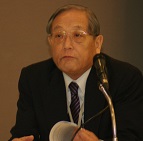Research Trends and Practices in Philippine Public Administration: A Content Analysis of the Philippine Journal of Public Administration, 1990-2019
DOI:
https://doi.org/10.64423/arpa.v32i2.16Keywords:
Philippine Journal of Public Administration, content analysis, bibliometric analysis, public administration, research trends, emerging topicsAbstract
While the Philippine public administration (PA) research has a long and productive history, research trends and practices in Philippine PA are seldom the subject of recent empirical research. This study aims to fill this literature gap on trends in the study of Philippine PA and governance, as represented in the Philippine Journal of Public Administration. It also describes temporal shifts in research approaches, focus, and citation practices. With content analysis as the principal method of inquiry and analysis, the study examines the following areas of PJPA articles published between 1990 and 2019: article attributes, profile of contributors, methodology, geographic focus, topic or subject area, and citation practices. The study uses data historicization, cross-tabulation, and descriptive statistics. Results show that some research topics have been consistent for the last three decades, while others were popular only in the 1990s and 2000s; others found resurgence or currency only recently, or are under-examined or nascent. Others have become less studied or are neglected as a field of study. Consistent with those found in the literature, qualitative studies continue to dominate the journal, but the proportion of quantitative articles has seen a steady increase in the last three decades. Similarly, collaborative practice in the journal is slowly increasing, but geographical diversity is found wanting. The trends also corroborate previous empirical findings on the dwindling contribution from PA practitioners in recent decades, and the underrepresentation of female authors in PA scholarship. In the latter, the publication rate of women in the PJPA is slightly higher compared with those found in the literature.
References
Bouwman, R., & Grimmelikhuijsen, S. (2016). Experimental public administration from 1992 to 2014: A systematic literature review and ways forward. International Journal of Public Sector Management, 29(2), 110-131. https://doi.org/10.1108/IJPSM-07-2015-0129
Brillantes, A. B. Jr., & Fernandez, M. T. (2008). Is there a Philippine public administration? Or better still, for whom is Philippine public administration? Philippine Journal of Public Administration, 52(2-4), 245–307.
Cariño, L. V. (1972). To advance administrative knowledge: Research in the College of Public Administration. Philippine Journal of Public Administration, 16(3), 289–297.
Cariño, L. V. (2006). From traditional public administration to the governance tradition: Research in NCPAG, 1952-2002. Philippine Journal of Public Administration, 50(1), 1–22.
Carrizales, T., & Gaynor, T. S. (2013). Diversity in public administration research: A review of journal publications. Public Administration Quarterly, 37(3), 306–330. http://www.jstor.org/stable/24372110
Co, E. E. A. (2012). NCPAG: Six decades of public administration education and service to the nation and some challenges of the future. National College of Public Administration and Governance, University of the Philippines.
Farazmand, A., Danaeefard, H., Mostafazadeh, M., & Sadeghi, M. R. (2019). Trends in public administration research: A content analysis of Iranian journal articles (2004-2017). International Journal of Public Administration, 42(10), 867–879. https://doi.org/10.1080/01900692.2019.1598689
Forrester, J. P., & Watson, S. S. (1994). An assessment of public administration journals: The perspective of editors and editorial board members. Public Administration Review, 54(5), 474–482.
Go, J. R. R. (2021). Political science research and methodology in the contemporary Philippines: An analysis of the Philippine Political Science Journal, 2000–2019. Asian Journal of Political Science, 29(2), 238-254. https://doi.org/10.1080/02185377.2021.1906289
Groeneveld, S., Tummers, L., Bronkhorst, B., Ashikali, T., & van Thiel, S. (2015). Quantitative methods in public administration: Their use and development through time. International Public Management Journal, 18(1), 61–86. https://doi.org/10.1080/10967494.2014.972484
Harzing, A. W. (2019). Two new kids on the block: How do Crossref and Dimensions compare with Google Scholar, Microsoft Academic, Scopus and the Web of Science?. Scientometrics, 120(1), 341-349.
Hendren, K., Luo, Q.E., & Pandey, S.K. (2018), The state of mixed methods research in public administration and public policy. Public Admin Review, 78(6), 904-916. https://doi.org/10.1111/puar.12981
Kelly, J., Sadeghieh, T., & Adeli, K. (2014). Peer review in scientific publications: Benefits, critiques, & a survival guide. EJIFCC, 25(3), 227–243.
Kim, M. H., Li, H., Holzer, M., & Zhang, M. (2019). Public administration research in mainland China: A systematic review of Chinese public administration in English language journals (1996–2016). International Journal of Public Administration, 42(9), 753–764. https://doi.org/10.1080/01900692.2018.1506936
King, M. M., Bergstrom, C. T., Correll, S. J., Jacquet, J., & West, J. D. (2017). Men set their own cites high: Gender and self-citation across fields and over time. Socius, 3, 1–22. https://doi.org/10.1177/2378023117738903
Lyu, P.-H., Zhang, M.-Z., Liu, C.-J., & Ngai, E. W. T. (2023). Global scientific production, international cooperation, and knowledge evolution of public administration. Public Administration, 101(3), 1134–1162. https://doi.org/10.1111/padm.12853
Miller, K. J., & McTavish, D. (2011). Women in UK public administration scholarship?. Public Administration, 89(2), 681-697.
Munck, G. L., & Snyder, R. (2007). Debating the Direction of Comparative Politics: An Analysis of Leading Journals. Comparative Political Studies, 40(1), 5-31. https://doi.org/10.1177/0010414006294815
Ni, C., Sugimoto, C. R., & Robbin, A. (2017). Examining the evolution of the field of public administration through a bibliometric analysis of Public Administration Review. Public Administration Review, 77(4), 496–509. https://doi.org/10.1111/puar.12737
Ocampo, R. B. (1982). Toward a review of research and knowledge in Philippine public administration. Philippine Journal of Public Administration, 26(3-4), 219–227.
Ocampo, R. B. (2008). From public administration to public management, from governance to governmentality: Conceptual challenges to public administration. Philippine Journal of Public Administration, 52(2-4), 91–118.
Ospina, S. M., Esteve, M., & Lee, S. (2018). Assessing qualitative studies in public administration research. Public Administration Review, 78(4), 593–605. https://doi.org/10.1111/puar.12837
Ospina, S. M., & Dodge, J. (2005). Narrative inquiry and the search for connectedness: Practitioners and academics developing public administration scholarship. Public Administration Review, 65(4), 409-423.
Peñalosa, M. C. V. (2014). The Philippine bureaucracy: Prospects for administrative reform and indigenization. Philippine Journal of Public Administration, 58(2), 195–228.
Pilar, N. N. (2008). Philippine public administration: From classical, to new public administration, to new public management. Philippine Journal of Public Administration, 52(2-4), 308–318.
Raadschelders, J., & Lee, K.H. (2011). Trends in the study of public administration: Empirical and qualitative observations from Public Administration Review, 2000-2009. Public Administration Review, 71(1), 19-33. https://doi.org/10.1111/j.1540-6210.2010.02303.x
Reyes, D. R. (1995). The study of public administration in perspective: A passing review of the development of the discipline. Philippine Journal of Public Administration, 39(1), 1–36.
Reyes, D. R. (2001). An overview of current developments in the study and practice of public administration. Philippine Journal of Public Administration, 45(3), 225–241.
Reyes, D. R. (2008). The study of administrative history: Philippine public administration as an ahistorical discipline. Philippine Journal of Public Administration, 52(2-4), 195–223.
Ricote, E. E. (2008). Philippine public administration as a field of study: Enduring and emerging areas, challenges and prospects. Philippine Journal of Public Administration, 52(2-4), 167–194.
Ricote, E. E. (2005). Indigenization as “refounding” in Philippine public administration and governance. Philippine Journal of Public Administration, 49(3-4), 264–278.
Sabharwal, M., Levine, H., & D’Agostino, M. (2018). A conceptual content analysis of 75 years of diversity research in public administration. Review of Public Personnel Administration, 38(2), 248-267. https://doi.org/10.1177/0734371X16671368
Schmitz, J., & Leoni, G. (2019). Accounting and auditing at the time of blockchain technology: A research agenda. Australian Accounting Review, 29(2), 331-342.
Scutelnicu, G., & Knepper H. J. (2019). A tale of two journals: Women’s representation in public administration scholarship. Public Integrity, 21(1), 38-53.
Slack, J. D., Myers, N., Nelson, L., & Sirk, K. (1996). Women, research, and mentorship in public administration. Public Administration Review, 56(5), 453–458. https://doi.org/10.2307/977044
Tapales, P. D., & Alfiler, M. C. P. (1991). Sustaining Filipino unity: Harnessing indigenous values for moral recovery. Philippine Journal of Public Administration, 35(2), 99–113.
Tapales, P. D. (2002). Fifty years of public administration education in the Philippines: The UP NCPAG at the forefront. UP National College of Public Administration and Governance.
Teehankee, J.C. (2014). The study of politics in Southeast Asia: The Philippines in Southeast Asian political studies. Philippine Political Science Journal, 35(1), 1-18. doi:10.1080/01154451.2014.903555
Torneo, A. R. (2020). Public administration education in the Philippines, 1951-2020: History, challenges, and prospects. Journal of Public Affairs Education, 26(2), 127-149.
Downloads
Published
Issue
Section
License
Copyright (c) 2024 Michael Tumanut, Vincent Silarde, Jayson Fajarda, Eula Marie Mangaoang

This work is licensed under a Creative Commons Attribution-NonCommercial 4.0 International License.













